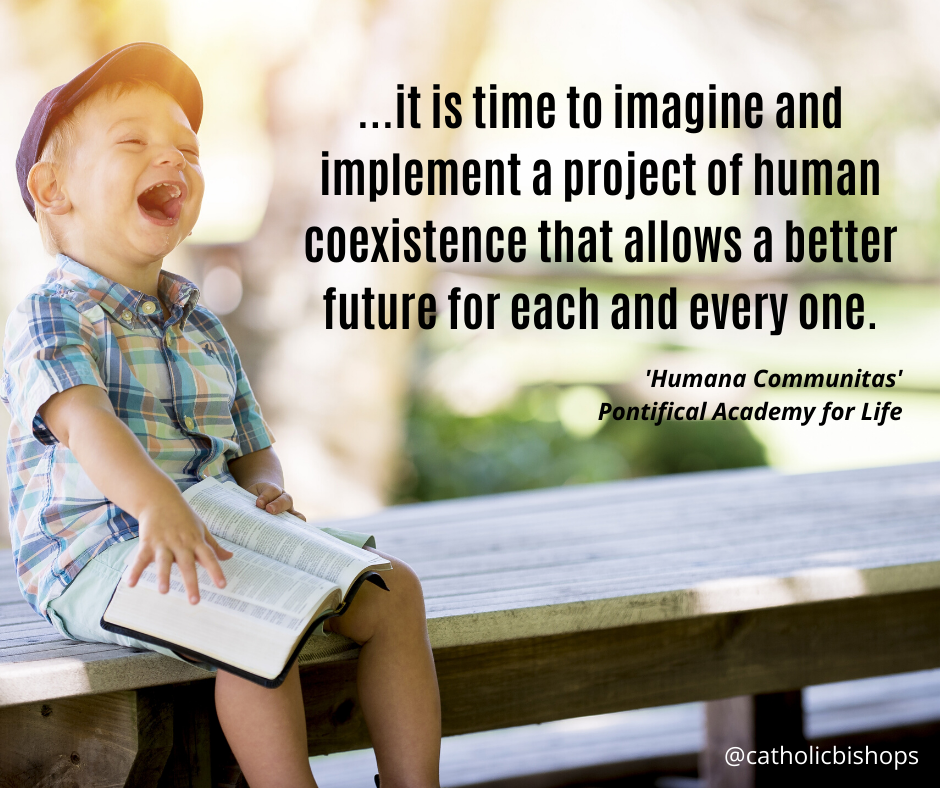“Humana communitas in the age of pandemic: Untimely meditations on life’s rebirth” is the title of the document which opens with a statement of fact: “Covid-19 has brought desolation to the world.” Despite the situation we find ourselves in, we are “summoned to the courage of resistance.”
The human community is therefore invited to take a step back and give thanks for the gift of life we have been given, in order to turn our predicament into “a passageway to life’s rebirth”.
Hard-learned lessons
The first part of the text explores the hard reality of lessons learned from the pandemic.
Reflecting on the spectre of empty streets and mutual mistrust, the document says the pandemic has “deprived us of the exuberance of embraces, the kindness of hand shakings, the affection of kisses, and turned relations into fearful interactions among strangers, the neutral exchange of faceless individualities shrouded in the anonymity of protective gear.”
This reality has taught us the lesson of fragility, as we hear about people falling victim to Covid-19, regardless of their age, social status, or health conditions. We are reminded that we are all frail and “radically marked by the experience of finitude at the core of our existence.”
As a result, the document affirms, we are called to recognize that life is a gift.
Consequences of greed and self-indulgence
The pandemic has also snuffed out our claims to “autonomous self-determination and control” and revealed the consequences of our misuse of Creation. “The Covid-19 epidemic has much to do with our depredation of the earth and the despoiling of its intrinsic value. It is a symptom of our earth’s malaise and our failure to care. Moreover, it is a sign of our own spiritual malaise.”
Increased deforestation, the document says, has pushed wild animals into proximity with humans, allowing the viruses they host to be passed on to people. These phenomena are the result of both natural occurrences and of “financial greed and self-indulgent lifestyles defined by consumption indulgence and excess.”
Rather, the document says, we must recognize our “wounded freedom”, since we dwell upon earth “as stewards, not as masters and lords.”
Mutually dependent
The interconnectedness that binds humanity has also been revealed by the Covid-19 pandemic. We are all dependent upon one another, making us strong or vulnerable, “depending on our own attitude toward it.”
Just as the coronavirus spread as a result of globalization, so too we must turn to solidarity – the young with the old, and rich nations with poorer ones – in order to overcome the pandemic’s devastating effects. The same solidarity, says the document, must be shown in the distribution of potential cures and vaccines.
Yet, it continues, “the seeds of hope have been sown in the obscurity of small gestures, in acts of solidarity too many to count, too precious to broadcast.”
Rebirth of life
The second part of the document traces out a new vision and path toward the rebirth of life through a call to conversion.
The lessons of fragility, finitude, and vulnerability, according to the Pontifical Academy for Life, urge the human community to “foster an ethos of life that calls for the engagement of intelligence and the courage of moral conversion.”
First, humanity must learn to appreciate the “existential reality of risk”. Since anyone may fall victim to Covid-19, we are all called to protect those who are most vulnerable, with concrete gestures of solidarity.
“A pandemic urges all of us to address and reshape structural dimensions of our global community that are oppressive and unjust, those that a faith understanding refers to as ‘structures of sin’.”
Risk and solidarity
An ethics of risk, says the document, requires a definition of community that rejects provincialism and the false distinction between insiders and outsiders.
Since everyone is a full member of the human community, all people have an equal right to “the best preventative, diagnostic, and treatment opportunities.”
Responsible scientific research, affirms the document, must be objective, free from outside influence, and trustworthy. “The good of society and the demands of common good in the area of health care come before any concern for profit.”
Better future for all
The Pontifical Academy for Life document concludes with a reflection on the moral nature of solidarity.
“Solidarity entails responsibility toward the other in need, itself grounded in the recognition that, as a human subject endowed with dignity, every person is an end in itself, not a means.”
Everyone, the document says, must do their part, because solidarity does not come free and requires sacrifice for the good of the poor, as well as for future generations.
Faced with the twin temptations of passive stoicism and unhelpful nostalgia for a return to the past, the human community is instead urged to “imagine and implement a project of human coexistence that allows a better future for each and every one.”
Read the document in full here.
ENDS


